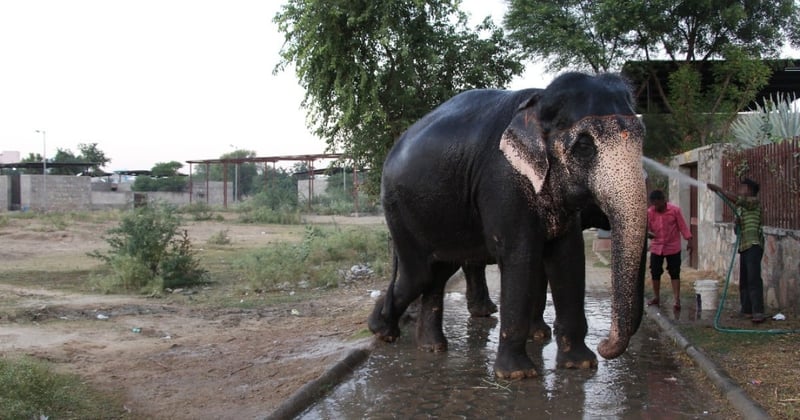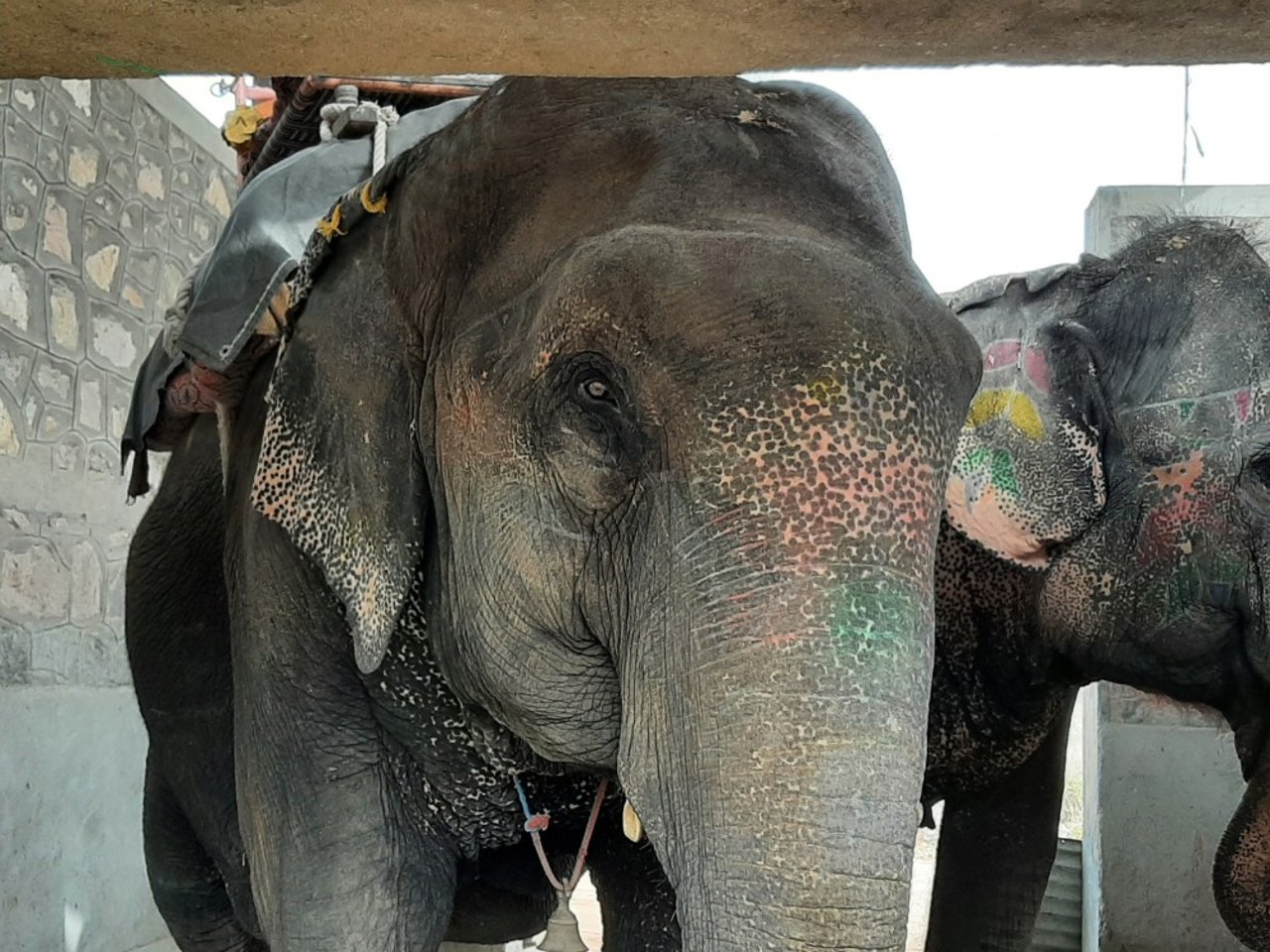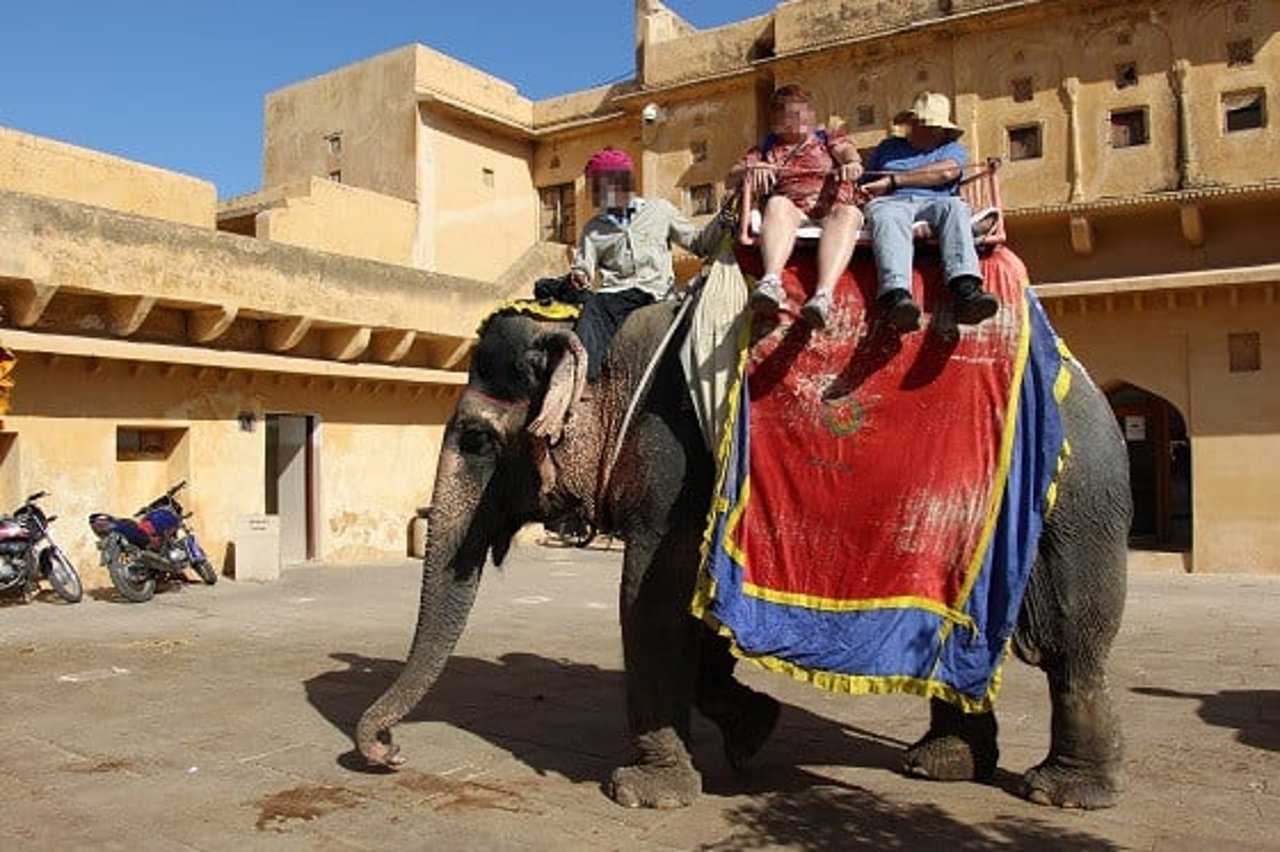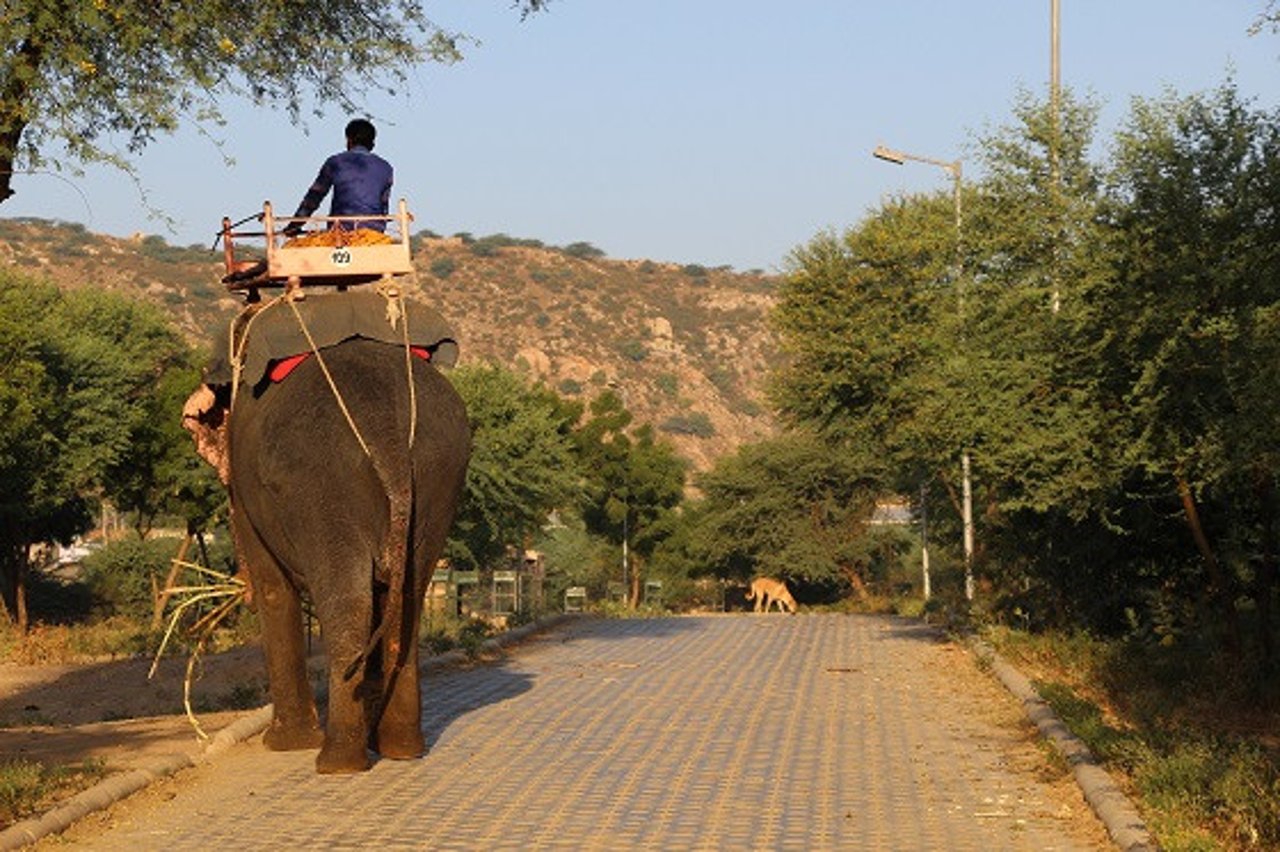
Rani the Elephant’s Plight of Captivity and the Urgent Call for Elephant Welfare in India
Blog
Elephants forced to work endure lives of servitude and cruelty, stripped of their freedom and dignity.
Rani, meaning ‘Queen’ in Hindi, is a female Asian elephant who was born to roam free in the lush forests of India. Yet, she spends her days trapped in a concrete stable at the Elephant Village outside of Jaipur. The facility was built by the State government in 2010 to house the over 120 “working” elephants—elephants who are forced to provide unnatural and exhausting entertainment rides to tourists. More than half of the elephants were brought there with their owners and mahouts (an elephant’s designated caretaker), while the rest remain trapped in even worse conditions.
At 43 years old, Rani has been working at Amer Fort in Jaipur for over 25 years with her current mahout. She doesn’t know any other life than this—taking tourists up and down the steep slope to India’s Amer Fort Palace, day after day.
But Rani’s life is far from easy. Every night, she struggles to sleep in her enclosure that’s filled with her own urine and feces, with chains and ropes restricting her movements.
Rani eats only what she is given—typically sugarcane. Her diet is poor compared to what she would eat if she was roaming free in the wild, and it leaves her weakened.
A day of suffering
Rani has been trained to obey about 35 commands—move, up, down, sit, photo, lift feet, turn around, and more. She doesn’t resist her mahout and knows if she does, she’ll be physically reprimanded, so she obeys and moves slowly. She kneels to have her howdah—elephant saddle—weighing about 110 pounds lifted on her back and waits patiently until it is tightly fitted.
Rani then leaves her stable with her mahout on her back to walk the 2.5-mile-long journey to Amer Fort. It is early, but the sun is strong. Her commute is dangerous—roads are chaotic, loud, and the tarmac hot. Her foot pads are not meant to walk on concrete roads, and they are all cracked and sore as a result. Elephants are not native to the hot and dry climate of Rajasthan and belong in the forests of greener states.
After a stressful journey, Rani arrives at the bottom of Amer Fort where she meets her counterparts: tens of elephants lined up to take tourists up the steep slope of the Fort. Being given no time to rest and recover from the journey, she must take her first load of tourists of the day straight away, up to two people per ride. It takes about half an hour of slow and painful uphill walking. At the top, the tourists get off, and without a pause, Rani walks back down. She will go up and down four times, without rest or water. Her mahout wields a bamboo stick with a sharp end, causing her pain if she stops or slows down.
An elephant ride has a set fee of about $16 USD per person, with an elephant earning about $130 USD a day.
Once Rani has finished “working” at Amer Fort, she must return to the elephant village, walking again the 2.5-mile-long journey on the same dangerous road. She is then forced to stay in her stable with the heavy howdah on her back, waiting to take more tourists for rides around the village in the afternoon. It is only when the sun goes down that Rani is finally done for the day. Tired, sore, and hungry, she is fed more food before being chained up for another sleepless night.
Rani is overworked and lonely, with little interaction with the other elephants, which is important for her psychological health and well-being. She endures a solitary life that goes against her nature as a social animal meant to be part of a close-knit family in the wild.
Help set elephants free
The next day, and each one thereafter, will be the same for Rani. It’s heartbreaking to see such a magnificent animal reduced to this life of labor and suffering—a life that is a far cry from her wild counterparts in the lush forests of Assam.
Sadly, Rani’s story is only one of many.
Your support means freedom for elephants like Rani. Together, we can do better for Rani and all the elephants like her, who deserve to live in their natural habitats, free from exploitation and abuse.


